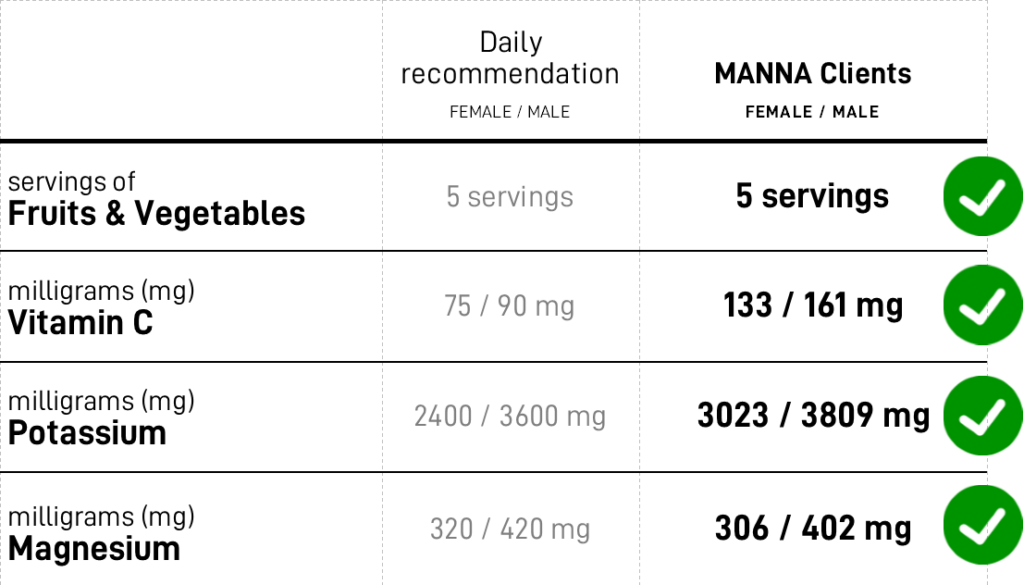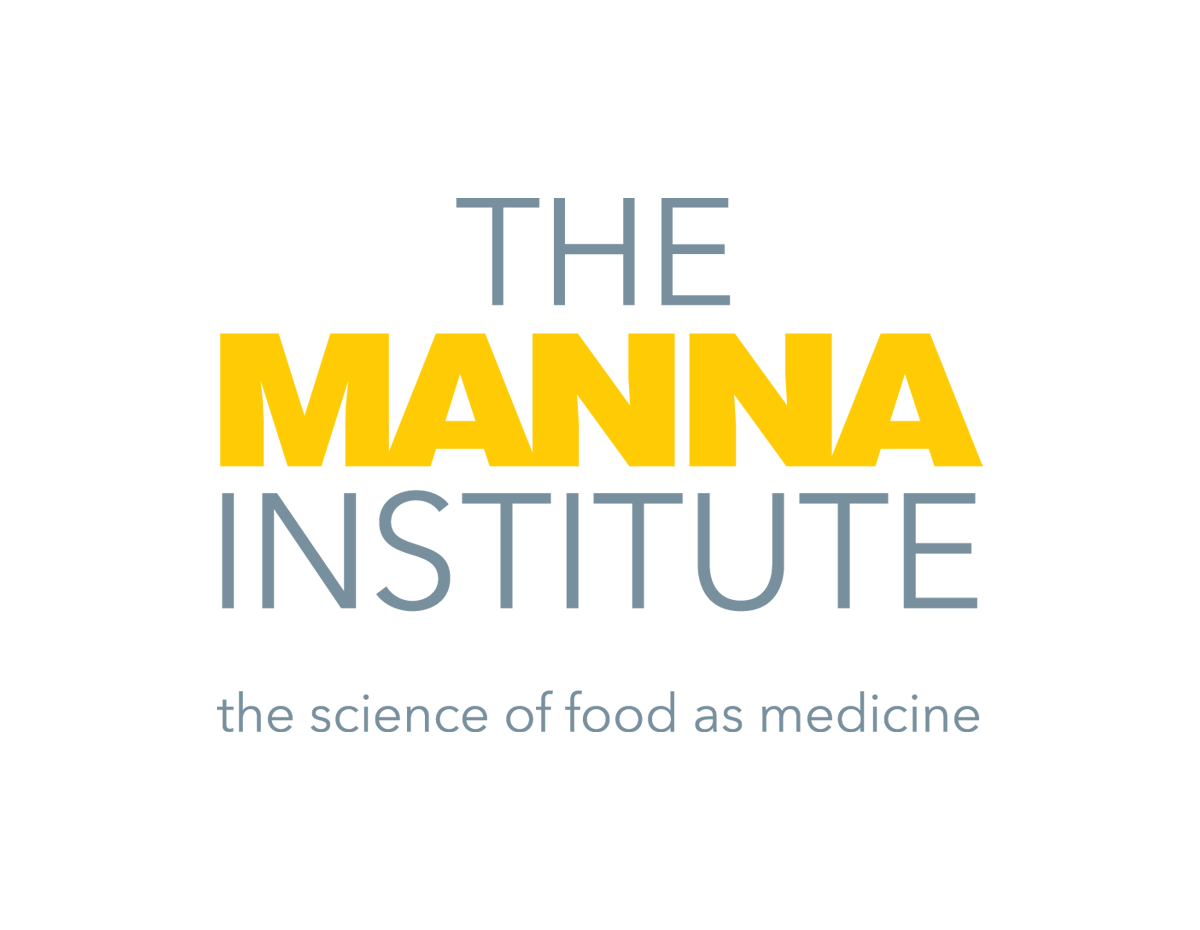The MANNA Institute recently partnered with a nutrition class at Drexel University to conduct food surveys with MANNA clients. We used Block Fruit-Vegetable-Fiber ScreenersTM to measure fruit and vegetable intake and associated nutrients in a cross-section of 137 MANNA clients. The average age of the clients surveyed was 60 years (range 17-94), there were about equal numbers of males and females represented, and the main diagnoses of clients were cancer, HIV/AIDS, diabetes, and high blood pressure.
The composite average fruit and vegetable intakes of males and females were 5.0 and 4.5 servings per day, respectively. The CDC found that only 1 in 10 adults get the recommended 5 servings[1]. According to Harvard Health Online, eating 5 fruits and vegetables a day can lower risk of chronic diseases such as heart disease, stroke, and cancer. More fruits and vegetables in your diet also helps maintain healthy body weight and lower blood pressure and cholesterol.[2]
Composite intakes of vitamin C, potassium, and magnesium were calculated from the Block Screener scores. Average intake for males and females, respectively, were 133 and 161 mg/day for vitamin C; 3023 and 3809 mg/day for potassium; and 306 and 402 mg/day for magnesium. Vitamin C supports wound healing and immune function, which is especially important during the Covid-19 pandemic[3]. Adequate potassium intake helps lower blood pressure and decreases risk of stroke[4], and magnesium decreases risk of cardiovascular disease, stroke, and diabetes[5]. The composite average intake of these nutrients indicates that MANNA clients are doing better than the US population. Intakes of potassium and magnesium are low for many Americans in part due to lower than recommended fruit and vegetable intake.
These data combined show that MANNA’s medically tailored meals provide a rich amount of fruits and vegetables, leading to great intakes of those food groups and their critical nutrients – vitamin C, potassium, and magnesium. For our clients, it is especially important that our meals help them maintain good health, especially when managing a serious illness during the Covid-19 pandemic[6]. These findings support our belief that MANNA’s meals are providing excellent levels of nutrients for those who need them most.

[1] https://www.cdc.gov/media/releases/2017/p1116-fruit-vegetable-consumption.html
[2] https://www.health.harvard.edu/staying-healthy/getting-your-five-a-day
[3] https://ods.od.nih.gov/factsheets/VitaminC-HealthProfessional/#:~:text=According%20to%20the%202001%E2%80%932002,most%20nonsmoking%20adults%20%5B21%5D .
[4] https://ods.od.nih.gov/factsheets/Potassium-HealthProfessional/
[5] https://ods.od.nih.gov/factsheets/Magnesium-HealthProfessional/
[6] https://nutrition.org/making-health-and-nutrition-a-priority-during-the-coronavirus-covid-19-pandemic/
